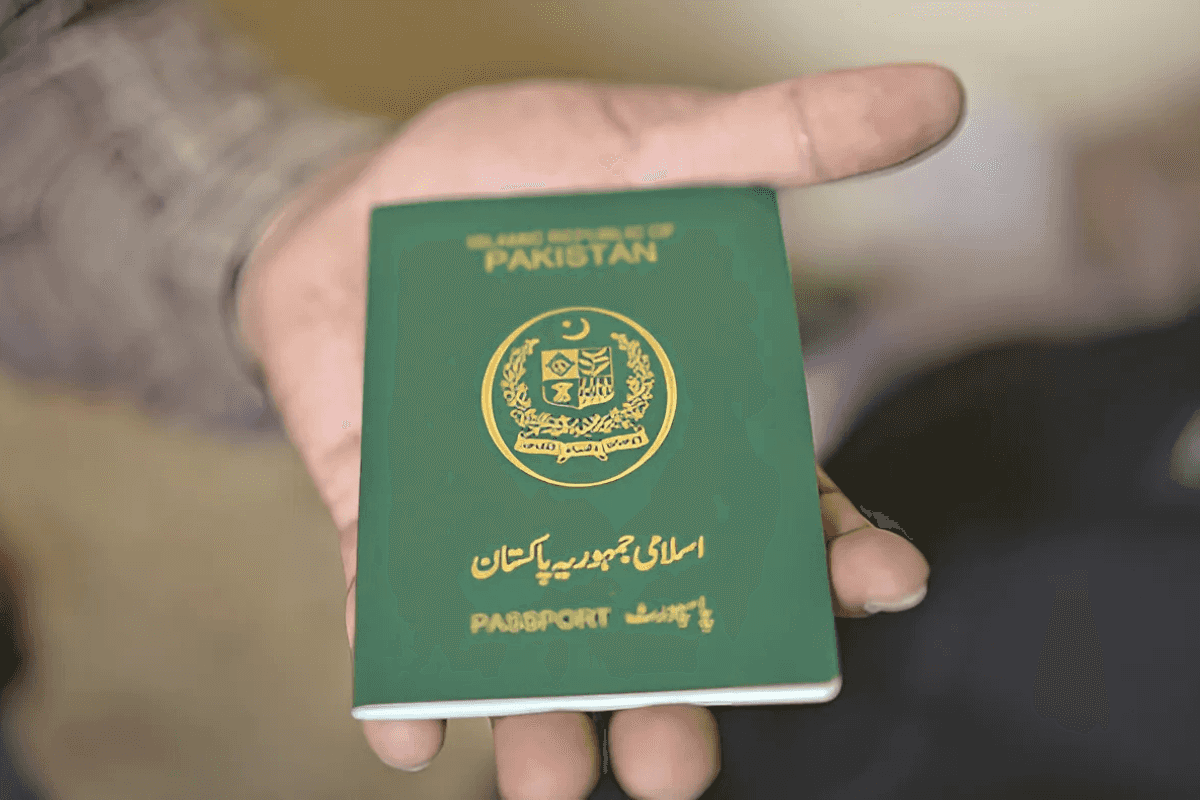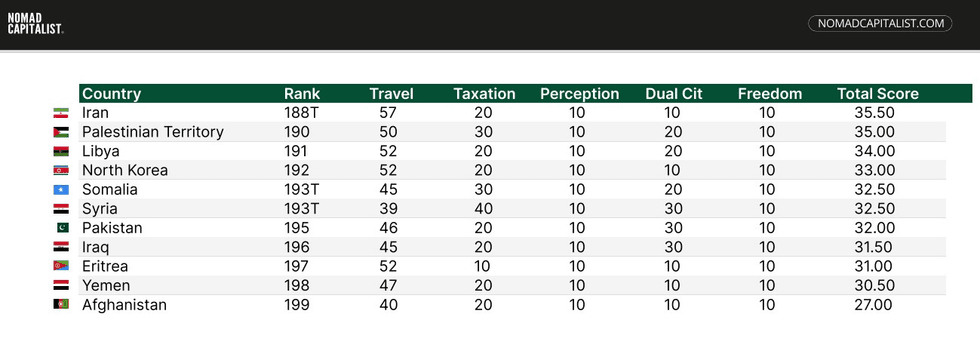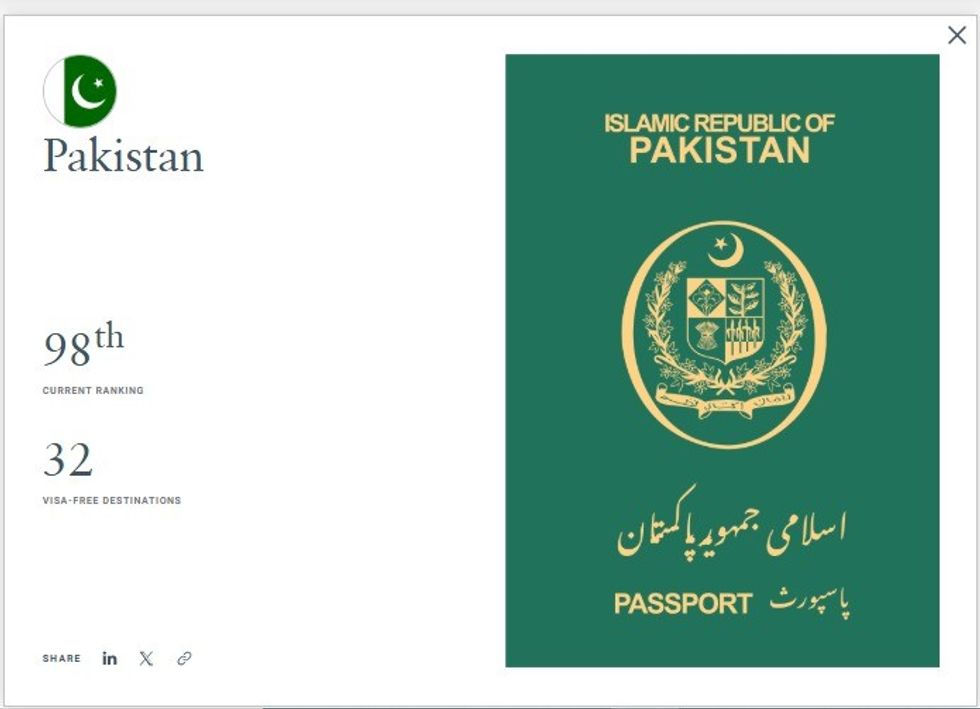Why the Pakistani passport is ranked among the world’s weakest
Pakistan’s deputy PM says the government is tackling these challenges through policy reforms, digitized passport services and tighter controls on fraudulent issuance

Javed Hussain
Correspondent
I have almost 20 years of experience in print, radio, and TV media. I started my career with "Daily Jang" after which I got the opportunity to work in FM 103, Radio Pakistan, News One, Ab Tak News, Dawn News TV, Dunya News, 92 News and regional channels Rohi TV, Apna Channel and Sach TV where I worked and gained experience in different areas of all three mediums. My journey from reporting to news anchor in these organisations was excellent. Now, I am working as a correspondent with Nukta in Islamabad, where I get the opportunity of in-depth journalism and storytelling while I am now covering parliamentary affairs, politics, and technology.

Pakistan’s passport has once again landed among the world’s least powerful, according to global rankings that weigh not just visa-free access but also international perception, personal freedom, and taxation.
The Nomad Capitalist Passport Index 2025 ranks Pakistan 195th out of 199 countries, placing it just above Iraq, Eritrea, Yemen, and Afghanistan.
The index evaluates passports based on five key factors: visa-free travel (50%), taxation (20%), global perception (10%), dual citizenship (10%), and personal freedom (10%). Pakistan’s overall score stands at a dismal 32, dragged down by severe restrictions on mobility, high taxation burdens, and low global perception.

Pakistani passport holders can access only 46 destinations visa-free, via visa-on-arrival, or eTA -- far below the global average. The country also scores poorly on personal freedom (10/50) and global perception (10/50), reflecting widespread hostility and entry restrictions faced by its citizens abroad.
Henley Index: A similar story
Meanwhile, the Henley Passport Index 2025 ranks Pakistan 98th out of 101 countries, offering visa-free entry to just 32 destinations -- a stark contrast to top-ranked Singapore (193) and even regional peers like India (79th, 58 destinations) and Bangladesh (95th, 39 destinations).

Government blames misuse and instability
Pakistan’s parliament was last week informed that the country’s passport remains one of the least powerful globally.
In a written response to the National Assembly, Deputy Prime Minister Ishaq Dar confirmed Pakistan’s 99th position on the Henley Index (as of last month), attributing the poor ranking to political instability, illegal migration, and widespread passport misuse—particularly fraudulent issuance to non-citizens, including Afghans.
The rankings cited by Dar were from the previous month, as Henley Global's latest index (as of this month) places Pakistan at 98th among 101 countries, with visa-free access to 32 destinations. Henley updates its rankings monthly, based primarily on visa-free access.
During Friday’s session, Federal Minister for Parliamentary Affairs Dr. Tariq Fazal Chaudhry defended the government’s stance, arguing that a passport’s strength depends on a nation’s credibility, not cosmetic changes.
“A passport doesn’t earn global esteem through cosmetic changes or by countering hostile resolutions abroad,” he said, while referring to the global recognition Pakistan received after its claimed triumph in a three-day aerial and border conflict with India.
What’s dragging Pakistan’s passport down?
- Visa-Free Access (46 destinations) – Far below global leaders like Singapore (193).
- Taxation (20/50) – Citizens can relocate to avoid taxes, but the system remains burdensome.
- Perception (10/50) – Pakistani travelers face entry bans and hostility in many nations.
- Dual Citizenship (30/50) – Allowed but with restrictions.
- Personal Freedom (10/50) – Low scores due to surveillance, press restrictions, and limited liberties.
Can Pakistan improve its passport power?
Dar emphasized the need for stronger diplomatic ties, enhanced passport security, and better border management to restore global confidence.
However, without addressing internal instability and misuse of travel documents, Pakistan’s passport is unlikely to climb the ranks anytime soon.







Comments
See what people are discussing